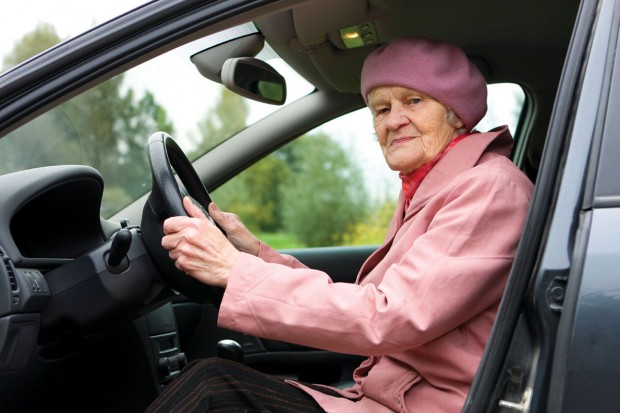Too Old to Drive?


(Photo: istockphoto.com/Rendery)
Most of us were with a parent the first time we got behind the wheel. We painstakingly logged hour after hour under their critical gaze before trust was earned.
Fast forward several decades. Kids who learned the fundamentals from their folks often find themselves in a horrible role-reversal, forced to find a way to take away the same freedom their parents gifted them.
“It was really rough; we had to physically take my dad’s car back to the dealership,” said Jennifer Greenberg, one of three siblings worried about their dad, Stanley Greiss, who was driving at age 83 up until August.
Greiss, who is still fit and healthy, was driving himself to the office every day. But an early diagnosis of dementia forced the siblings to take action. He reluctantly agreed to stop driving after forgetting where he was supposed to go one day. But it is a subject he still brings up.
“We knew the battle was more an emotional one,” said Greenberg. “Knowing he could get in his car and drive to the office or pick up dog food was a symbol of independence. Now, he has to call one of us for everything.”
One Memorial-area wife and mother didn’t want to be identified because she is avoiding the issue with her 87-year-old dad, who is still precariously behind the wheel.
“I dread dealing with the driving thing. My dad is still driving all over the place; he even drove to Kerrville recently. It will be a real issue because he is very proud and independent.”
The American Automobile Association says there are more than 20 million drivers in the U.S 70 and older. Studies show that senior drivers are more likely to get into multiple-vehicle accidents because of decreased driving ability due to impaired vision and hearing and deteriorating cognitive abilities.
There are warning signs when drivers should no longer be behind the wheel. Look for abrupt lane changes, sudden braking or acceleration, failing to use the turn signal or keeping the signal on without changing lanes, or drifting into other lanes.
Dr. Mark Kunik is a geriatric psychiatrist specializing in Alzheimer’s disease at the Michael E. DeBakey VA Medical Center.
“Remember the importance attached to getting a license,” said Dr. Kunik. “It is always better to try to get the affected driver to come to the decision not to drive on their own.”
He suggests starting with a professional driving evaluation from a certified driving-rehabilitation specialist like Strowmatt Rehabilitation Services. Or ask the older driver to restrict driving to a set area or time of day. If that doesn’t work, consider asking a doctor to intervene. Geriatric specialists say it is best not to be tricky and hide keys, but rather to approach the subject with dignity and compassion.
The non-profit Sheltering Arms Senior Services has trained case managers who will do a comprehensive assessment that includes counseling, support and specialist referrals.
Jeanie Janke knew it would be difficult for her dad. After all, driving was the family business. Her father was Tommie Vaughn, owner of Tommie Vaughn Ford car dealership. He died in 2005 at the age of 87.
“My dad worked at the dealership every day of his life. He still wanted to deliver cars,” said Janke.
“His peripheral vision was poor. He had a couple of little fender benders. And folks were witnessing him running stop signs. Our concern was not only for his safety but legally what could happen if there was an accident,” said Janke.
Despite pleas from the family, it took his eye doctor to convince their father to accept a driver.
It was an equally tough battle for Jan Tomlinson. Her strong-willed, healthy and independent mother was still driving at 87.
“We were hoping DPS would take care of the problem for us,” explained Tomlinson. “But she went in there on her walker and came out with a license.”
After she was diagnosed with neuropathy, which affected the feeling in her feet, a doctor ordered her not to drive, and she finally heeded the advice. As a carefully considered measure of respect, this family left their mother with the car and the keys, trusting that she would not drive.
“We drive her everywhere in her car. I wanted to honor her wishes to keep the car and let her be as independent as possible,” said Tomlinson. “Because it’s not about the car. It’s about losing self-sufficiency.”
Want more buzz like this? Sign up for our Morning Buzz emails.
To leave a comment, please log in or create an account with The Buzz Magazines, Disqus, Facebook, or Twitter. Or you may post as a guest.


